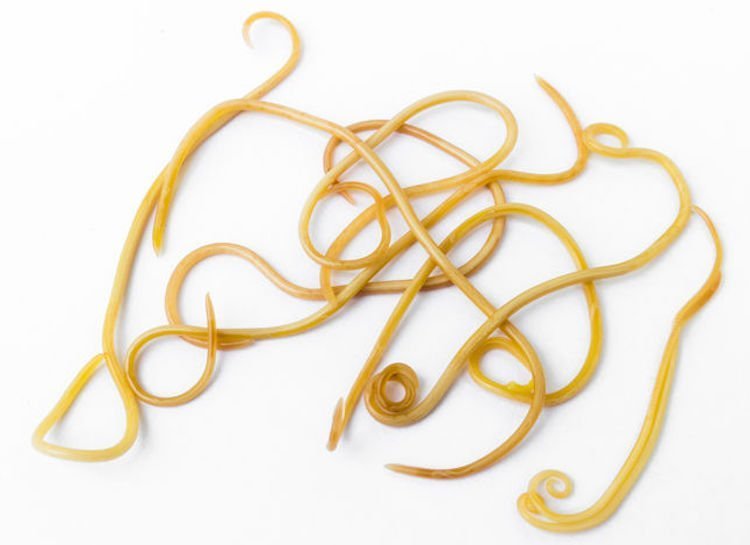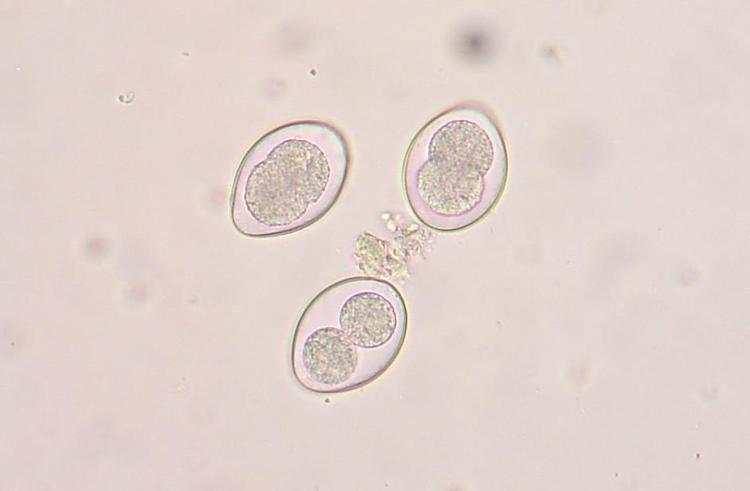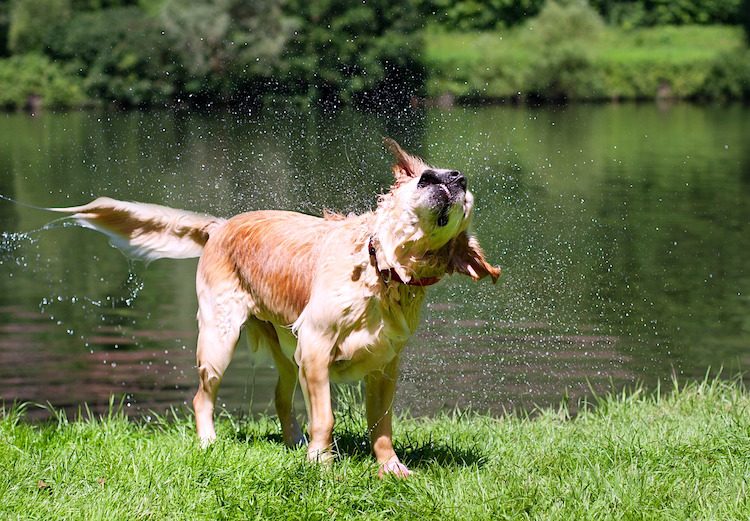This pet health content was written by a veterinarian, Dr. Debora Lichtenberg, VMD. It was last reviewed on May 24, 2024
If you have questions or concerns, call your vet, who is best equipped to ensure the health and well-being of your pet. This article is for informational purposes only and is not a substitute for professional medical advice, diagnosis or treatment. See additional information.

Understanding Hookworms in Dogs
Hookworms (Ancylostoma caninum) are very small parasites that infect the small intestine of dogs and sometimes cats.
Hookworms are small parasites that attach to the lining of the intestine and feed on blood, causing various health issues in dogs. Recognizing the symptoms and understanding the treatment options is crucial for your pet’s well-being.
The hookworm does not enter the gastrointestinal tract of humans.
For comprehensive information on worms in cats, including how to identify them, refer to our detailed article on Cat Worms Identify: Symptoms of Worms in Cats.

Symptoms of Hookworms in Dogs
Hookworms in dogs can cause symptoms such as diarrhea, weight loss, and anemia. Severe infestations may lead to more serious health problems, including weakness and lethargy.
How to Get Rid of Hookworms in Dogs
To get rid of hookworms in dogs, follow your vet’s treatment plan precisely, and maintain a clean environment to prevent reinfection. Regularly pick up and dispose of feces to reduce contamination.
Other Common Worms in Dogs
While hookworms are a significant concern, dogs can also be affected by other types of worms, each causing different symptoms and requiring specific treatments.
Roundworms
These worms occur in dogs (Toxocara canis) and cats (Toxocara cati) and are super-obvious spaghetti-looking worms that are highly visible to the naked eye. They are also called ascarids.
Roundworms (Toxocara canis) are highly visible, spaghetti-like worms that can cause vomiting, diarrhea, and a pot-bellied appearance in puppies. They are often passed from mother to puppy during nursing.

Tapeworms
Tapeworms (Dipylidium caninum) are flat, segmented worms that often appear as rice-like grains around a dog’s anus or in feces. They are usually contracted through the ingestion of infected fleas.
Whipworms
Whipworms (Trichuris vulpis) are small worms that inhabit the large intestine, causing bloody diarrhea, weight loss, and general debilitation in severe cases.

Giardia
Giardia is a protozoan parasite that causes giardiasis, leading to symptoms such as diarrhea, weight loss, and malabsorption in dogs. It is contracted through contaminated water sources.

Coccidia
Coccidia are microscopic parasites that infect the intestinal lining, causing severe diarrhea, especially in puppies and immunocompromised dogs. They are often found in crowded, unsanitary conditions.

Diagnosing Worms in Dogs
Proper diagnosis of worms in dogs typically involves a fecal examination by a veterinarian. A stool sample is analyzed to identify the type of parasite and determine the appropriate treatment.

Fecal Sample Collection
Collecting a fresh stool sample is crucial for accurate diagnosis. Your veterinarian may ask for a small sample to be brought in during your dog’s annual physical.
Analyzing the Sample
In a routine stool sample, the feces are floated in a solution that allows parasite eggs to rise to the top. A drop of this solution is then examined under a microscope to identify the parasite.
Deworming Dogs
Deworming involves giving your pet medication to eradicate parasites in the GI tract. Identifying the parasite is essential for choosing the appropriate anthelmintic.
Common Deworming Medications
The majority of dewormers are oral medications: pills, powders, pastes, or liquids. Some topical dewormers are also available and effective when used correctly.
Learn more about deworming puppies in this video:
Frequency of Deworming
Most wormers begin to act immediately, but because parasites have different life cycles, treatments must often be repeated. Follow your vet’s instructions for the best results.
Preventing Worms in Dogs
Preventing worm infestations involves regular veterinary check-ups, maintaining a clean environment, and using preventative medications as recommended by your vet.

Regular Vet Visits
Annual vet visits should include a fecal examination to check for parasites, ensuring early detection and treatment.
Environmental Hygiene
Keep your dog’s living area clean by regularly picking up feces and preventing them from ingesting contaminated soil or water.
Frequently Asked Questions (FAQ)
how to treat hookworms in dogs?
Use anthelmintic medications prescribed by your veterinarian.
What are the symptoms of hookworms in dogs?
Symptoms include diarrhea, weight loss, anemia, and weakness.
What are the symptoms of worms in humans from dogs?
Symptoms include abdominal pain, diarrhea, fatigue, and weight loss.
What are the symptoms of heartworms in dogs?
Symptoms include coughing, fatigue, decreased appetite, and weight loss.
References
- Bowman, Dwight, PhD. Georgis’ Parasitology for Veterinarians, 10th ed. Saunders. 2013.
- Burke, Anna. “Whipworms in Dogs.” American Kennel Club. June 7, 2017. https://www.akc.org/expert-advice/health/whipworms-dogs-symptoms-treatment-prevention/.
- “Gastrointestinal Parasites in Dogs.” VetFolio. http://www.vetfolio.com/gastroenterology/gastrointestinal-parasites-in-dogs.
- Zajac, Anne et al. Veterinary Clinical Parasitology, 8th ed. Wiley-Blackwell. 2012.



